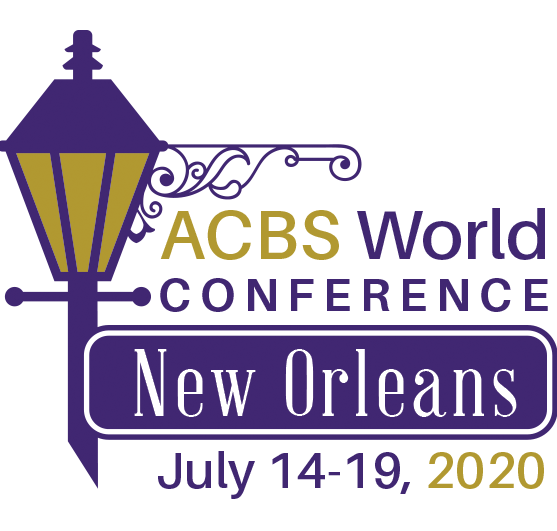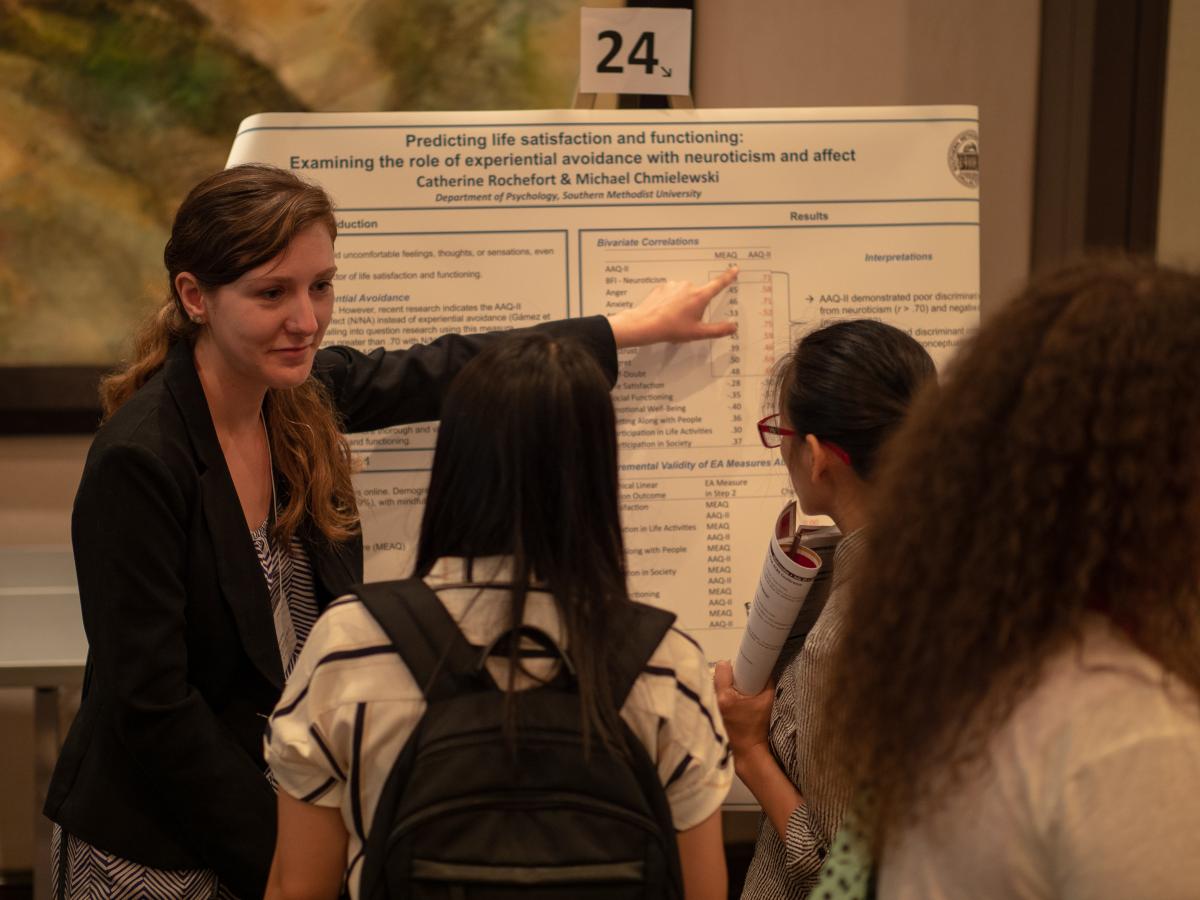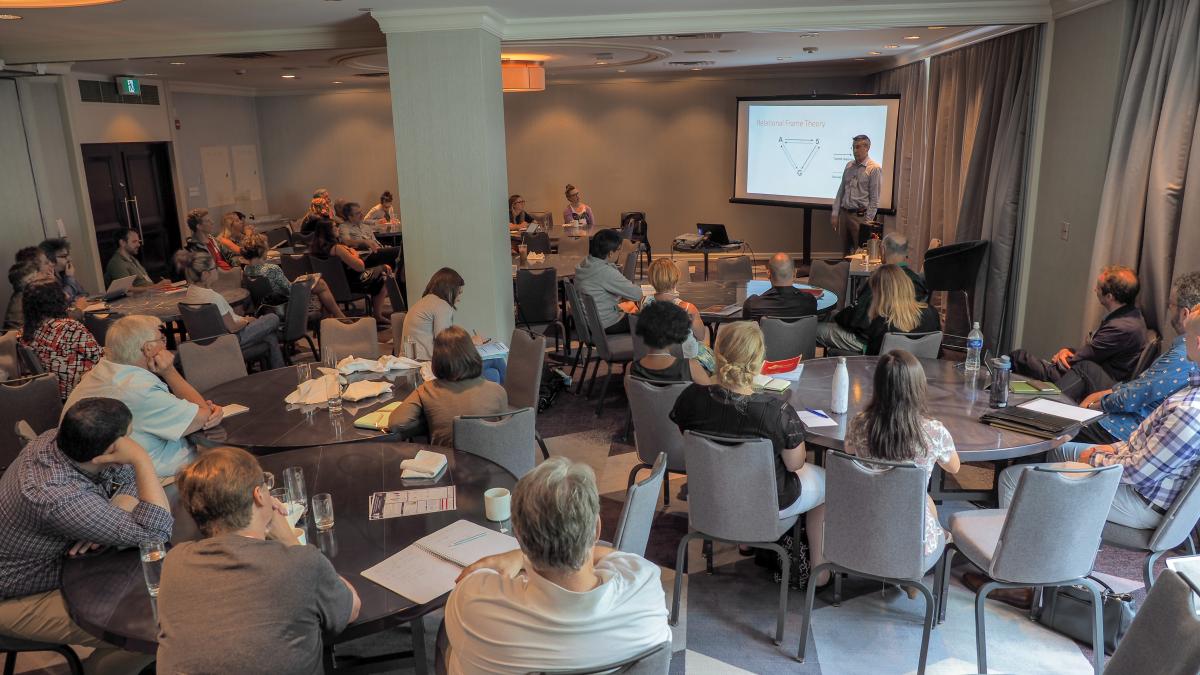ACBS World Conference 18, July 14-19, 2020, New Orleans, Louisiana, USA
Join us in New Orleans!
Conference Theme:
This conference invites all who are driven by compassion to reclaim the world across all levels and dimensions. Presentations on topics vastly ranging from the intricacies of human verbal learning to addressing climate change on a planetary level are all welcome. When we understand the dynamics of contextual behavioral science, the underlying principles of evolutionary change reveal themselves, and the reality of Reclaiming the World, the One World, Our World, is present in our hearts and minds. May we make this loving transformation present in the world for the benefit of all beings, together. - Dr. Dennis Doshin Tirch, ACBS President
Oral submission deadline: February 15, 2020. (Results of oral submissions will be emailed out in the last week of March or the first week of April, 2020).
Poster: The original deadline for poster submissions is Friday, March 20, 2020.
Results will be emailed out during the last week of March or first week of April.
The alternate deadline for poster submissions is Friday, May 1, 2020. (Note that these late submissions may not appear in the printed/final conference program.)
Results will be emailed as soon as practicable between May 20 and May 30.
Chapter/SIG meeting deadline: May 1, 2020.
RFT and Behavior Analysis Track:
A track will be organized for submissions of RFT/Behavior Analysis data, as well as conceptual and clinically-relevant submissions to address the needs of those interested in RFT and BA across experience levels.
If you have any problems submitting, please contact [email protected]
Tips for Submissions
Questions about the new submission website? Check out some FAQs here.
Are you wondering how to increase the chance of acceptance for your submission? Click here for tips.
Unsure about writing Educational Objectives? Click here to learn more about them.
Are you submitting a poster? Check out the poster guidelines here.
Submission Types:
Poster
Posters usually report empirical research and will be organized into one or more sessions, during which attendees will be invited to review the research presented and discuss findings with poster presenters. Presenters must be at their poster during their assigned time of the poster session and may choose to provide handouts. (Poster size: no larger than 36 inches tall by 48 inches wide, or A0 size (a vertical poster is strongly preferred). Smaller is also permitted.) Abstract word limit: 250 words maximum
Read the poster guidelines here.
Plenary/ Invited Address (use only if instructed)
Chapter/SIG/Committee Meeting
This gives Chapters/SIGs/Committees (or forming chapters and sigs) the opportunity to reserve a space and time to get together and plan, meet, socialize, etc. This form allows you to request space before or during the conference day (early morning, during the conference, during lunch, etc.) Deadline: May 1, 2020
IGNITE
The Ignite presentation is a short, structured talk in which presenters present on ideas and issues they are most passionate about using a “deck” of 20 slides that auto-advance every 15 seconds (no exceptions). Exactly 5 minutes total. Topics may be empirical, conceptual, philosophical, historical, or methodological. Presentation should be well-practiced and high energy (perhaps even... fun!). Abstract word limit: 175 words maximum
For more on Ignite presentations, see:
http://www.speakerconfessions.com/2009/06/how-to-give-a-great-ignite-talk/
Panel Discussion
Panel discussions consist of 3 to 5 speakers selected for some shared interest or expertise in an area. Panelists respond to one or more questions or issues, with time allotted for interaction among the speakers and with the audience. A panel discussion is organized by a chairperson who serves as the session’s moderator. Abstract word limit: 175 words maximum
Symposia (chair, 3 - 5 papers and a discussant)
Organized by a chairperson who moderates the 90 minute session, symposia are a series of three to five 15-20 minute presentations focused on either empirical research or conceptual, philosophical, historical, or methodological issues. A discussant highlights and integrates the contributions of various speakers in the symposium and moderates questions from the audience. Chairpersons are encouraged to use symposia as an opportunity to integrate related work by: 1) bringing speakers of different affiliations together rather than showcasing the work of a single group and 2) incorporating different kinds of talks (e.g., historical, conceptual, and research-based) on the same topic into one symposium. Papers from submissions that are not accepted may be considered for a poster session. This year, we are prioritizing submissions that are research and data driven. In service of being more data aware, we encourage you to include research citations (data citations) with your proposal. The Program Committee will not split apart symposia that are submitted together. Abstract word limit: 175 words maximum
Paper (not part of a pre-arranged symposium)
Paper submissions are individual, oral presentations, usually concerned with conceptual, philosophical, historical, or methodological issues. A paper submission will usually report on data. All paper presentations will be 15-20 minutes long. Accepted submissions will be organized into paper sessions of 90 minutes. Submissions not accepted will be considered for a poster session. We are prioritizing submissions that are research and data driven. In service of being more data aware, we encourage you to include research citations (data citations) with your proposal. Abstract word limit: 175 words maximum
Workshop
Workshops are training sessions of 1.5 or 3 hours and usually focus on a combination of experiential and/or didactic exercises. Workshop submissions are highly competitive (note: based on past events, the acceptance rate for workshops is approximately 60-70%, and of workshops submitted only 7%-11% receive 3 hour slots). Please put your best workshop/abstract forward keeping this in mind when determining your desired length. Keep in mind as well that most workshops selected are for the 1.5 hour slots. Be sure to clearly state your goals and objectives for participant education in your submissions. Workshops should be regarded as opportunities to directly train specific skills rather than to present research findings, discuss conceptual, philosophical, or methodological issues, or share opinions. However, in service of being more data aware, we encourage you to include research and data citations supporting your topic with your proposal, and to briefly present these (1-2 slides) during your workshop. Submissions that are not clearly focused on training should be submitted for other formats. Abstract word limit: 175 words maximum



